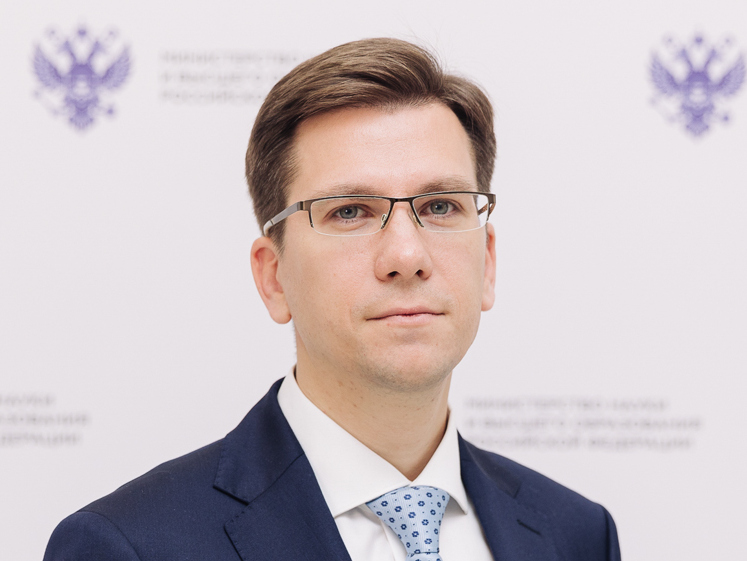The Advanced Aerospace Engineering School has already been operating on the basis of Samara University for two years. The intermediate result of its operation was the first graduation of the project students. How the approach to training high-quality engineers changes, what educational programs are being developed, what high-tech production is and why it is again prestigious to work at factory, was told us by Ivan Tkachenko, Director of Samara University’s AAES.

Two years ago, Samara University was included in the top thirty advanced engineering schools being created all over the country. Later, 20 more such schools appeared, and their number will grow. Aren’t you afraid of competition?
In the Samara Region, there are three advanced engineering schools – at Samara University, Samara State Medical University and Tolyatti State University. We plan to participate in a new wave of the Competition, for the purpose of creating another advanced engineering school at our University. At present, we are forming the application. We are not afraid of competition, because the theme we’ve chosen for this new advanced engineering school is perfectly unique. It is related to production technologies, in fact, to transition of the industry to the rails of Industry 4.0. And we train specialists for it. When just forming the application in 2022, we had quite a lot of opportunities for organizing the school given our traditionally strong competencies – those in propulsion engineering, space technology and mechanical engineering. But we decided to find a platform that could combine our best practices and established relations with our industrial partners. We are aimed at transiting from job production in the field of complex high-tech equipment, such as spacecrafts, aircraft engines, to their mass production. For our country, this issue is now more relevant than ever, and in this regard, solutions that we develop today or only intend to develop will definitely find their consumers.
Along with your developments, your first graduates will be in demand, as well, right?
It is still difficult to give an evidence-based answer: our first graduation took place only this summer. We have not yet received full feedback from the graduates on their employment, but we hope that they will be in demand. At present, the main thing for us is to overcome young people’s stereotypes related to factories and those who work there. The future belongs to the modern digital factory. This is a completely different level of production: with different approaches, technologies, different quality of personnel and requirements for their competencies. So far, we still have to explain to schoolchildren what production technologies are, but more and more children currently try to get to us. There were 75 people in the first stream, 58 of whom graduated, having got bachelor degree or master degree. It’s perfectly normal that not everyone got to the finals. Our requirements are rather high. And, for meeting them, you need the strongest motivation and the desire to grow in your knowledge. Herewith, some graduates do not go to work at production, but continue their education. Now I can just say that all our graduates who have found a job, have chosen high-tech companies. Of course, we want the vast majority of our graduates to work at enterprises of the aerospace cluster, and preferably in the native region. But it should be admitted that there is a certain outflow from the Samara Region, with cases of employment in the oil industry, IT, etc. But the main thing is that these are high-tech companies, and not, say, trade.
You’re popularizing the idea that working at factory is cool. Can you depict the image of new employees at modern high-tech enterprises, which should be attractive to young people?
To begin with, it is necessary to form the image of the high-tech production itself. If this is Industry 4.0, it is about highly automated and robotized all technological production processes. There are few people in such factories, the production facility is critically complex, with advanced technical systems to be used there, all operations are very delicate, requiring high quality and accuracy, stability of all processes. Accordingly, the people who work there will have to deal with selecting technology, tooling, equipment and maintaining the lines. Such production does not require a large amount of human resources, but high-quality engineers who will constantly adapt and innovate the design of products, maintain and develop the information environment, as well as the production one.
Controlling modern systems is not only due to deep knowledge.
We pay much attention to soft skills, when guys learn not just to do their job well, but to do teamwork on a project. We try to form competencies of the communicative nature, regardless of which program the students learn under. We also develop the ability to work together, curiosity, and the desire to constantly develop and gain new knowledge. Indeed, desire is the basis of everything. It is very difficult and almost fruitless to work with a passive group of people.
Therefore, during their training, our students try themselves in different roles: projector, designer, developer, technologist, marketer, and choose what suits them specifically, corresponds to their character and basic skills. Given that the AAES initially recruits initiative and inquisitive young people, we get at finish excellent specialists to be competitive in the market. Sometimes, however, we have to explain to potential employers that, for the purpose of maintaining the leading position of the enterprise, it is important to apply modern approaches, which our graduates are well versed in.
Have you already managed to implement projects, which have convinced your partners that you can offer them something truly advanced?
Yes, we are now getting such results. If we spent the first two years building our own competencies, today we have already been demonstrating them, and moreover, we do it at a high level. Here we must pay tribute to our partners and regional authorities: they listen to us and invite major leaders to Samara, such as, for example, Valery Falkov, Minister of Science and Higher Education, and Yury Borisov, Director of the State Corporation “Roscosmos”. We had a unique chance to show them the outcomes of our research.
How would you describe the desirable future of the AAES? How can the project be scaled? Or is it not the number of graduates, but quality of their training?
The AAES project has federal grant support. I am sure that all investments in the project will pay off, and in this sense, the University will have the opportunity for gaining new partners and new projects. On the one hand, they will repay the costs to have been invested in us, and, on the other hand, they will become a source of new development tasks. And new tasks mean interesting scientific projects and the need to train personnel for them. Thus, in my opinion, the mechanism to have been triggered will definitely continue functioning and developing.
As for our plans for future, we are not aimed at significant scaling; although now we have not 75, but 300 students, in future we are going to grow only qualitatively.
Meanwhile, it is important that the approaches we are practicing at The School today become the entire University’s achievement.
It seems to me that the main result of the AAES is that we have launched the process of transforming the traditional engineering training program. I am sure that now it is the time to look at the program in a new way, to adapt it to the challenges that our country faces, and, on the other hand, to respond to young people’s requests, to their vision of future life, career and educational ambitions.
Today, it is no longer possible to think that the University will provide an education for working on its basis for the rest of your life.
We are well aware that the knowledge we give will help you find a job and get a decent salary, but you will definitely have to study further, because these are requirements of the time. At present, for being competitive in the modern environment, it is necessary to constantly hone and supplement your knowledge. However, the AAES and the University do not compete and do not try to replace each other. The University provides us with the base of teaching staff and scientific research, on the grounds of which we can develop our advanced approach to training personnel.
Source: the newspaper “Samarskoe Obozrenie” (Samara Review) No. 34 (1937), September 30, 2024
